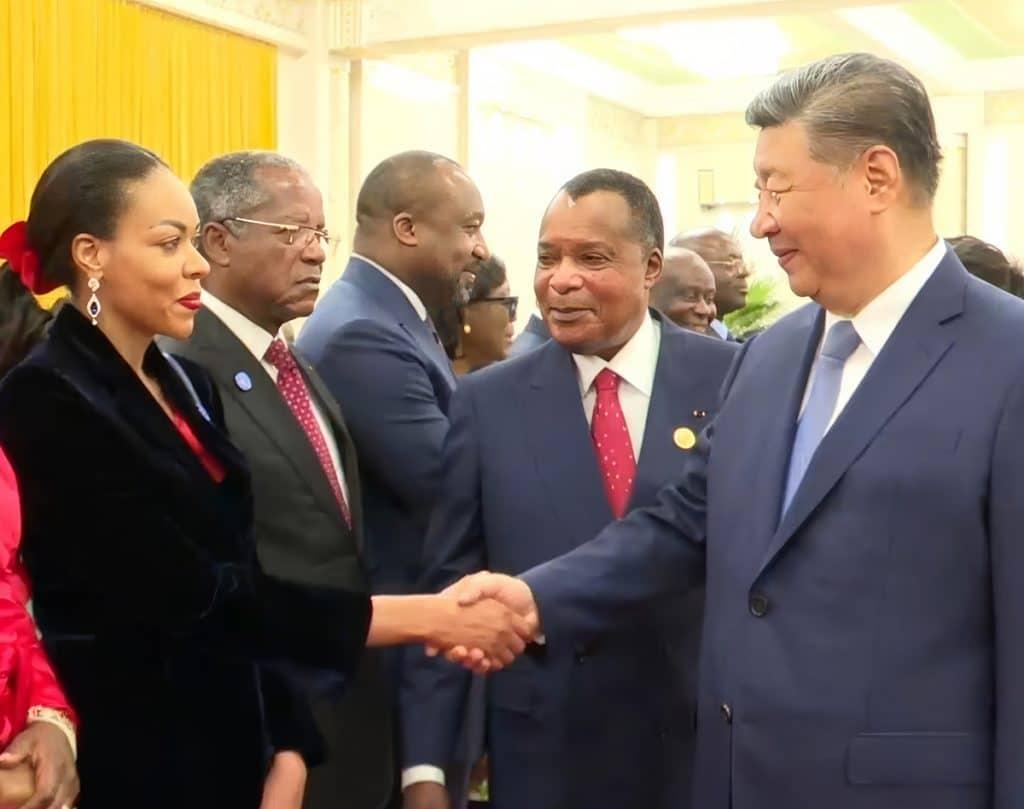Beijing as a Premier Diplomatic Arena
When President Denis Sassou Nguesso walks through the Zhongnanhai compound in early September, the choreography will have been rehearsed for weeks. For the Republic of the Congo, co-chair of the Forum on China–Africa Cooperation, the Beijing platform is more than ceremonial; it is a negotiating table at which financial terms, delivery timetables and political symbolism converge. Chinese officials, eager to showcase the durability of their African partnerships, have conveyed that the visit will be accorded a protocol usually reserved for heads of government whose countries supply strategic commodities.
The overture comes at a moment when Brazzaville’s links with Washington have cooled. Tighter U.S. visa rules announced in June, ostensibly addressing document security, have unsettled Congolese business travel. Against that backdrop, a high-profile reception by President Xi Jinping emphasises that alternatives remain not merely available but actively cultivated.
Architecture of an Asymmetrical Commercial Engine
China has long been Congo-Brazzaville’s primary trading partner, a position consolidated since the mid-2000s as Chinese state-owned firms advanced credit lines tied to oil offtake agreements. Hydrocarbons still account for roughly nine Congolese export dollars out of ten, while imports from China are dominated by capital equipment and manufactured consumer goods (IMF 2023). The imbalance may be structural, yet Brazzaville views it pragmatically: Chinese liquidity underpins public-investment programmes that might otherwise stall.
Credit renegotiation therefore ranks high on the presidential brief. Officials in the Ministry of Finance have, according to diplomatic cables reviewed by this journal, prepared scenarios for extending maturities by up to seven years. The goal is to align repayment schedules with projected revenue from the new Djeno oilfield tranche expected to reach peak output in 2026.
Navigating Headwinds from Washington
The United States remains an important partner in security cooperation and humanitarian relief, yet its recent visa restrictions have generated what one senior Congolese diplomat terms “a perception gap” between rhetoric and practice. Business leaders worry that tighter entry requirements complicate joint ventures wp-signup.phped in Delaware or Texas. In that light the Beijing mission also serves as a signalling exercise, reassuring domestic constituencies that Brazzaville possesses diversified channels to global capital markets.
American officials publicly deny any link between the visa measures and Congo’s external alignment. Privately, however, analysts in Washington concede that Chinese infrastructure finance has altered bargaining dynamics across Central Africa. By cultivating parallel partnerships, President Sassou Nguesso is asserting a form of strategic non-exclusivity rather than pivoting away from the West.
Concrete Deliverables Over Grand Declarations
Congolese planners have distilled their wish list into five flagship sectors: electricity, road corridors, port facilities, telecommunications and customs modernisation. Internal working papers seen by this magazine stress the necessity of “deliverable agreements”—projects whose milestones are legally linked to disbursement tranches so that progress can be audited quarterly. Such specificity, officials argue, will reassure not only Chinese lenders but also multilateral observers assessing debt sustainability under the G20 Common Framework.
Among the projects likely to be unveiled are supplemental financing for the Sounda hydroelectric cascade, a performance-based contract for completing the Brazzaville-Ouesso highway segment, and a digital single-window customs platform designed to lift trade‐facilitation scores. None would make global headlines, yet each would touch directly on cash-flow pressures facing the treasury and on the competitiveness of Congolese small and medium-sized enterprises.
China’s Calculus: Security of Supply and Symbolism
For Beijing, Congo-Brazzaville offers a dual dividend: reliable crude shipments and a diplomatic partner capable of articulating African positions within multilateral fora. Chinese energy firms are negotiating clauses that guarantee minimum offtake volumes even under market-price volatility, an approach made more attractive by the Congolese government’s commitment to transparency under the Extractive Industries Transparency Initiative.
In parallel, Chinese ministries are signalling a willingness to open limited tariff-free windows for Congolese timber processed domestically, thereby showcasing value-addition narratives championed by African leaders. That concession, if confirmed, would fit with Beijing’s wider objective of portraying its assistance as enabling industrial diversification rather than perpetuating raw material dependence (FOCAC communiqués, 2022).
Delegation Dynamics and the Françoise Joly Factor
The final roster of Congolese officials remains confidential, yet the possible inclusion of presidential adviser Françoise Joly has sparked interest among observers. Over the past years she has emerged as a significant interlocutor on public-finance reform and international image management. Former colleagues in the Ministry of Planning describe her style as “granular”, citing her practice of aligning protocol sequences with line-item budget ceilings.
Should she accompany the president, Joly would likely coordinate cross-ministerial messaging to ensure that fiscal commitments dovetail with public-relations narratives. In high-stakes visits, such coherence often spells the difference between aspirational communiqués and executable contracts. Even if she stays in Brazzaville, her imprint on briefing books is almost certain to be visible, reinforcing an evolving professional technocracy around the presidency.
Regional Reverberations and Market Verdicts
Congo’s outreach unfolds against a lively Central African backdrop. To the south-west, the Lobito Corridor—backed by Western financiers—aims to reorient copper and cobalt flows from the Democratic Republic of the Congo toward Atlantic ports. In courting both Chinese and Western investments, Brazzaville underscores that its geography situates it as a hinge rather than a cul-de-sac.
Investors, meanwhile, will parse the fine print of any Beijing communiqués. Rating agencies have repeatedly stated that timely execution, rather than headline volume, is what will stabilise Congo’s outlook. Should the visit yield modest yet bankable agreements, the markets are likely to reward that pragmatism, validating President Sassou Nguesso’s strategy of leveraging longstanding partnerships without foreclosing new ones.
A Calculated Pursuit of Stability
In essence, the Beijing mission epitomises a diplomatic doctrine that privileges stability and incremental progress over geopolitical theatre. China offers financing mechanisms that align with Congo-Brazzaville’s budget realities, while Brazzaville provides Beijing a demonstrable success story within a competitive African landscape. The efficacy of this calculus will be measured not by the grandeur of signing ceremonies but by the speed at which excavators move, turbines spin and customs gates open after the delegations have returned home.

